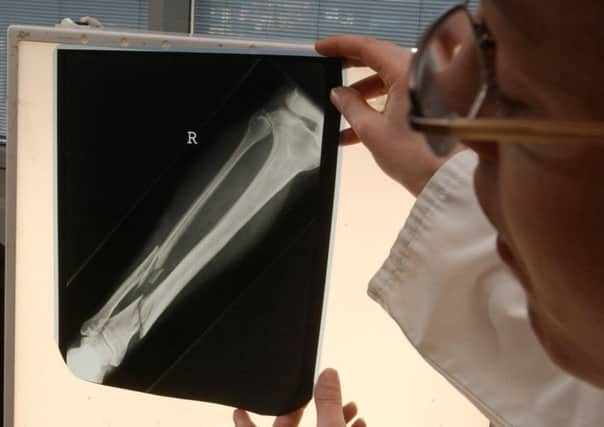Drug used to treat osteoarthritis '˜no better than placebo'


Hand osteoarthritis is estimated to affect nearly a third of people over the age of 70. But the first-line treatments – paracetamol, non-steroidal anti-inflammatory drugs, or opioids – are often not effective and some patients experience adverse reactions.
Doctors have instead been using hydroxychloroquine as an off-label alternative.
Advertisement
Hide AdAdvertisement
Hide AdBut a study led by the University of Leeds found no benefit in taking hydroxychloroquine to control debilitating pain when compared with a placebo.
Prescription drugs are licensed for certain conditions, but “off-label use” means doctors are using them to treat illnesses outside of that designated or authorised list.
Researchers said it is not clear how often doctors use hydroxychloroquine off-label although it is believed to be a common practice.
The study involved 248 patients at 13 NHS hospitals in England. All of them had the condition for at least five years and had changes to the joints in their hands consistent with osteoarthritis.
The participants all reported moderate to severe pain on at least half of the days in the previous three months to the study beginning.
The study found that patients initially reported a small reduction in the severity of pain before the improvement plateaued. However, that change was seen in both the group receiving the medication and the group taking the placebo.
Measurements of grip strength and the structural damage existing in patients’ joints were similar for both groups.
Lead researcher Dr Sarah Kingsbury said: “There is increasing evidence that inflammation is a factor in osteoarthritis. So doctors have used hydroxychloroquine off-label, in a way that it was not licensed for, to try and control symptoms and pain.
Advertisement
Hide AdAdvertisement
Hide Ad“But until now, there has not been a large-scale study into whether using hydroxychloroquine works. And our evidence shows that for most patients it is not an effective treatment.”
The study, published in the journal Annals of Internal Medicine, was funded by Arthritis Research UK.
Figures from Arthritis Research UK show 8.75 million people over the age of 45 have sought treatment for all types of osteoarthritis.